Quantile Beta Regression The quantile beta regression model discussed in the 2021 paper by Running Code When you click the Render button a document will be generated that includes both content and the output of embedded code.
Rogue Scholar Posts

Complete tutorial and code See the full tutorial here. You can also see the tutorial’s code here and the code for the final API here.

Rambling (proxy for an introduction) We are experiencing the chaos of the information age, and its technological advents with voracious evolution and expansion. And in the midst of all this we have the advent of Big Data that has reached the delights of many with Data Science, Machine Learning and Artificial Intelligence. As a result, the idea of mathematical and statistical “models” became the rage, gaining visibility.
Soooo, my last job at Deck was amazing. I loved it. I was doing data engineer stuff there, mostly maintaining infrastructure for data pipelines. Everyone was great and the mission was amazing: helping Democrats win. Yet the company was shut down about a month ago, sending me on another job search, the 3rd since early/mid 2021.
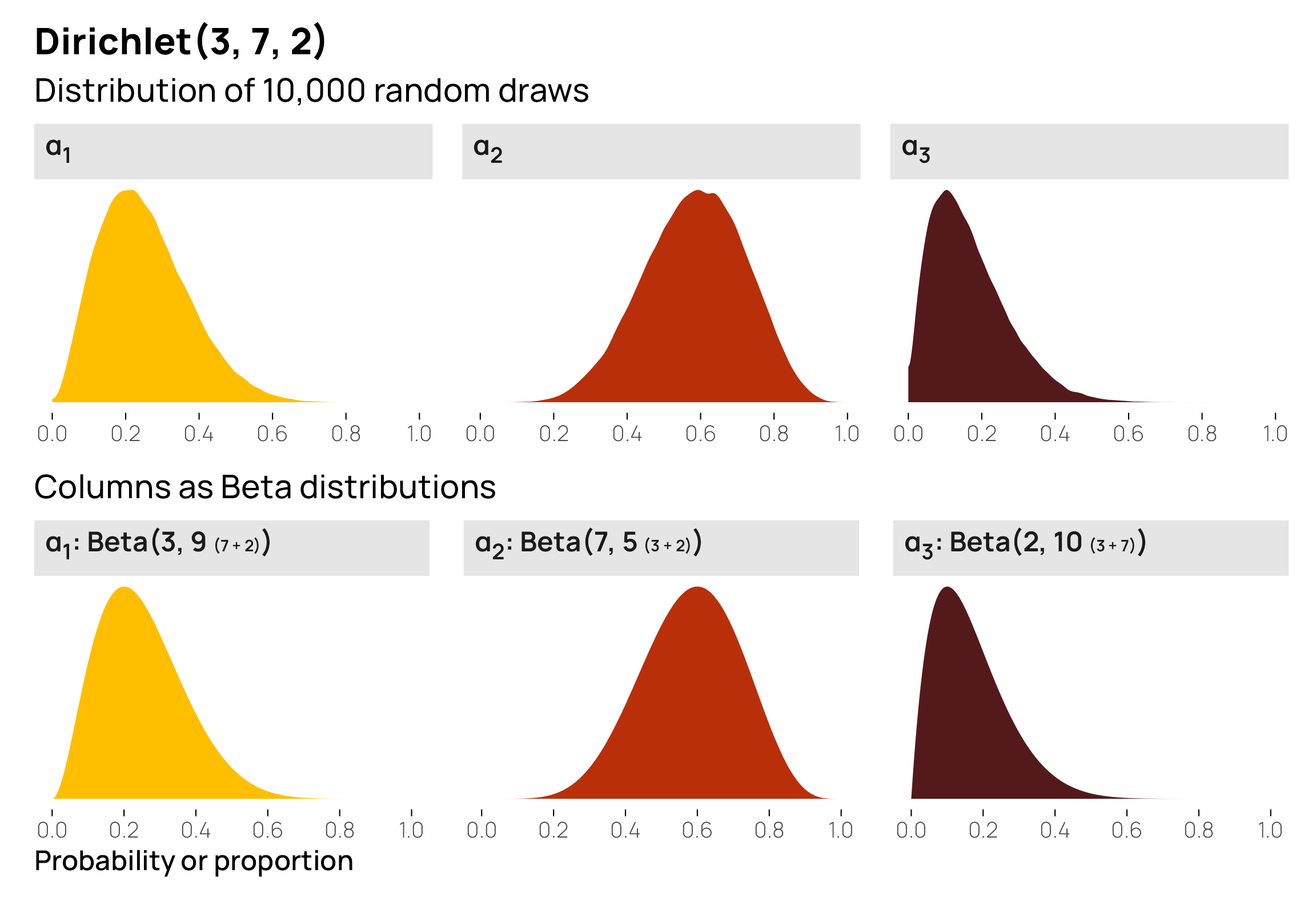
I’ve been finishing up a project that uses ordered Beta regression (Kubinec 2022), a neat combination of Beta regression and ordered logistic regression that you can use for modeling continuous outcomes that are bounded on either side (in my project, we’re modeling a variable that can only be between 1 and 32, for instance). It’s possible to use something like zero-one-inflated Beta regression for outcomes like this, but that kind of model

In a project I’m working on, I need to generate predictions from a logistic regression model.
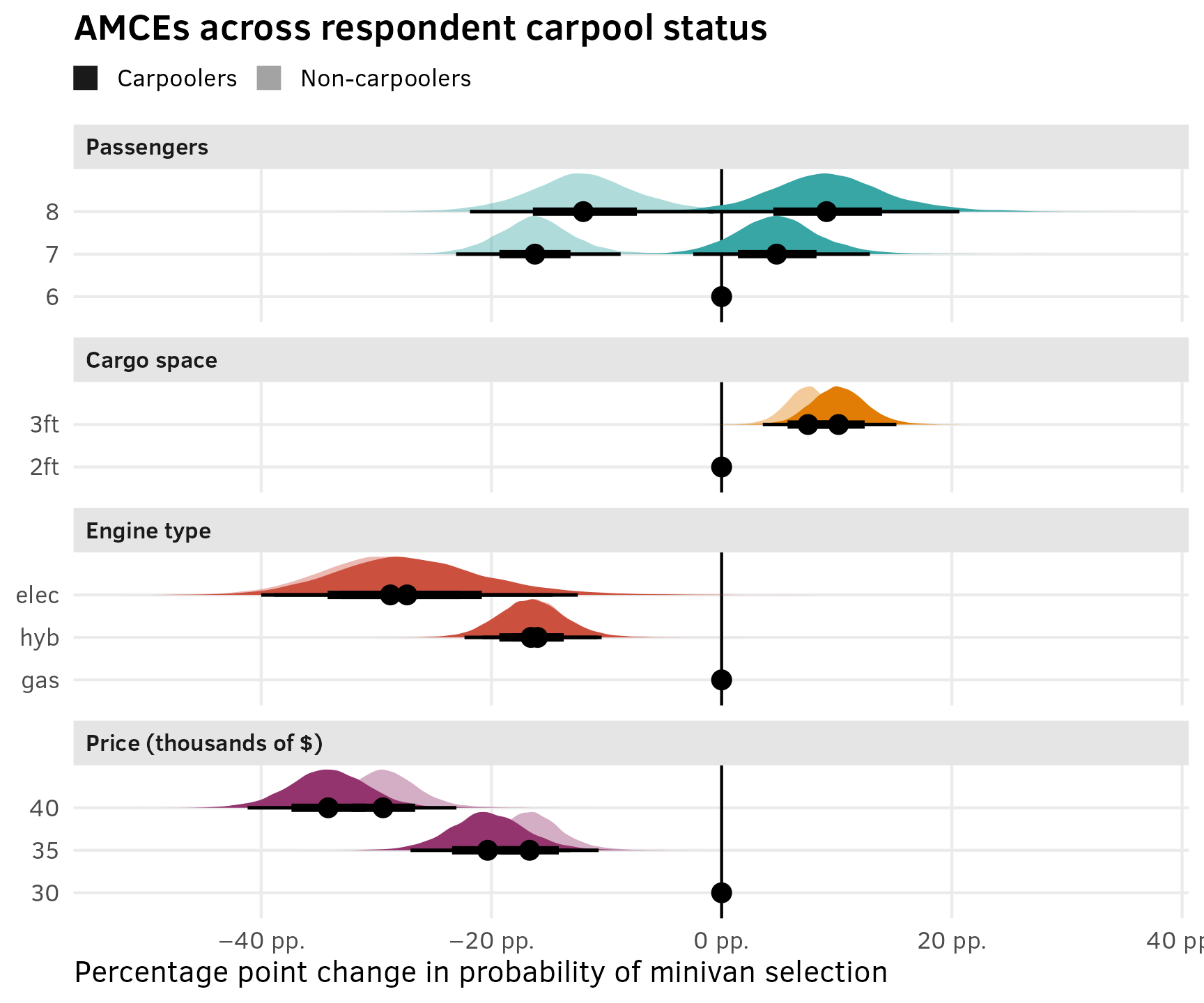
I recently posted a guide (mostly for future-me) about how to analyze conjoint survey data with R. I explore two different estimands that social scientists are interested in—causal average marginal component effects (AMCEs) and descriptive marginal means—and show how to find them with R, with both frequentist and Bayesian approaches. However, that post is a little wrong. It’s not wrong wrong, but it is a bit oversimplified.
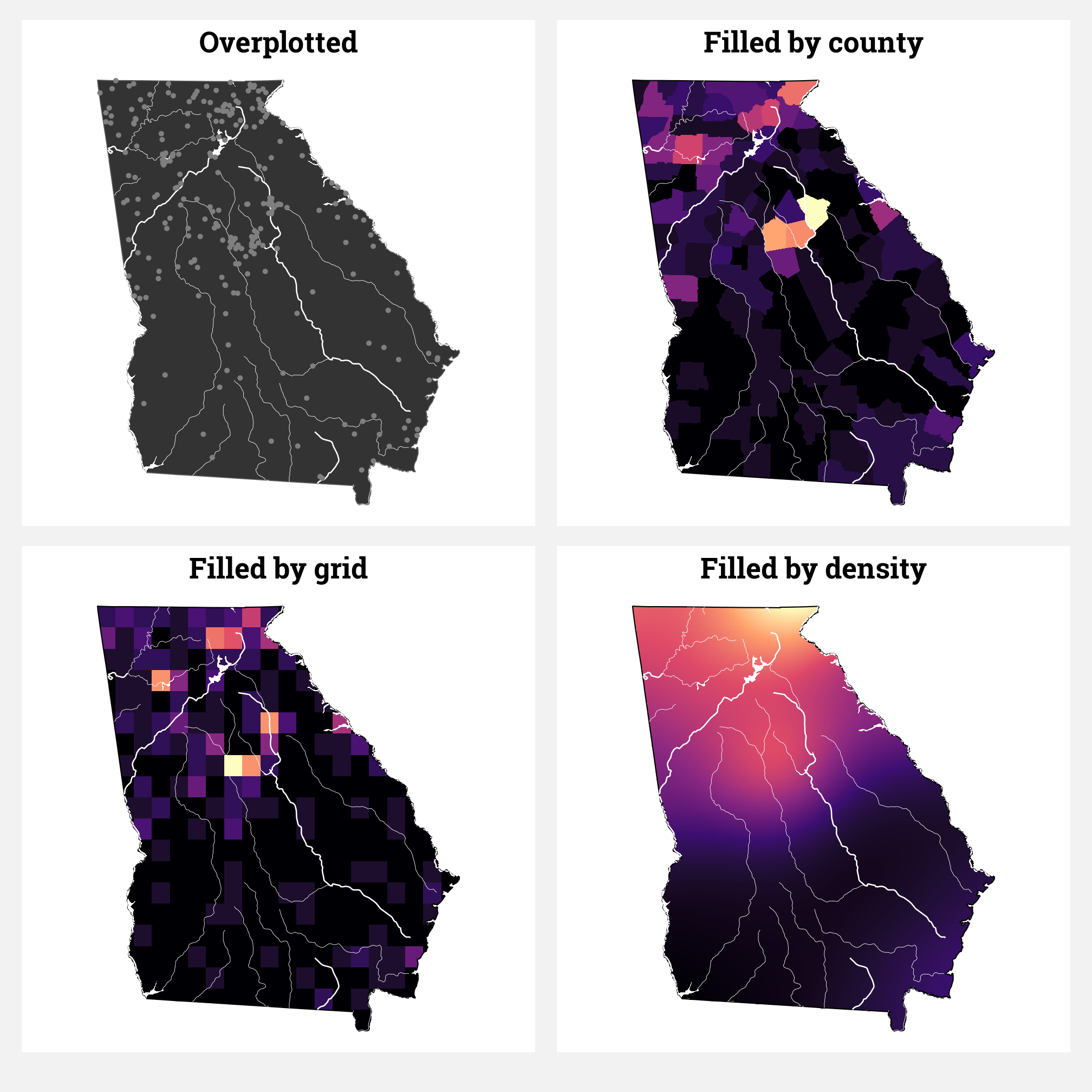
The students in my summer data visualization class are finishing up their final projects this week and I’ve been answering a bunch of questions on our class Slack. Often these are relatively standard reminders of how to tinker with specific ggplot layers (chaning the colors of a legend, adding line breaks in labels, etc.), but today one student had a fascinating and tricky question that led me down a realy fun dataviz rabbit hole.
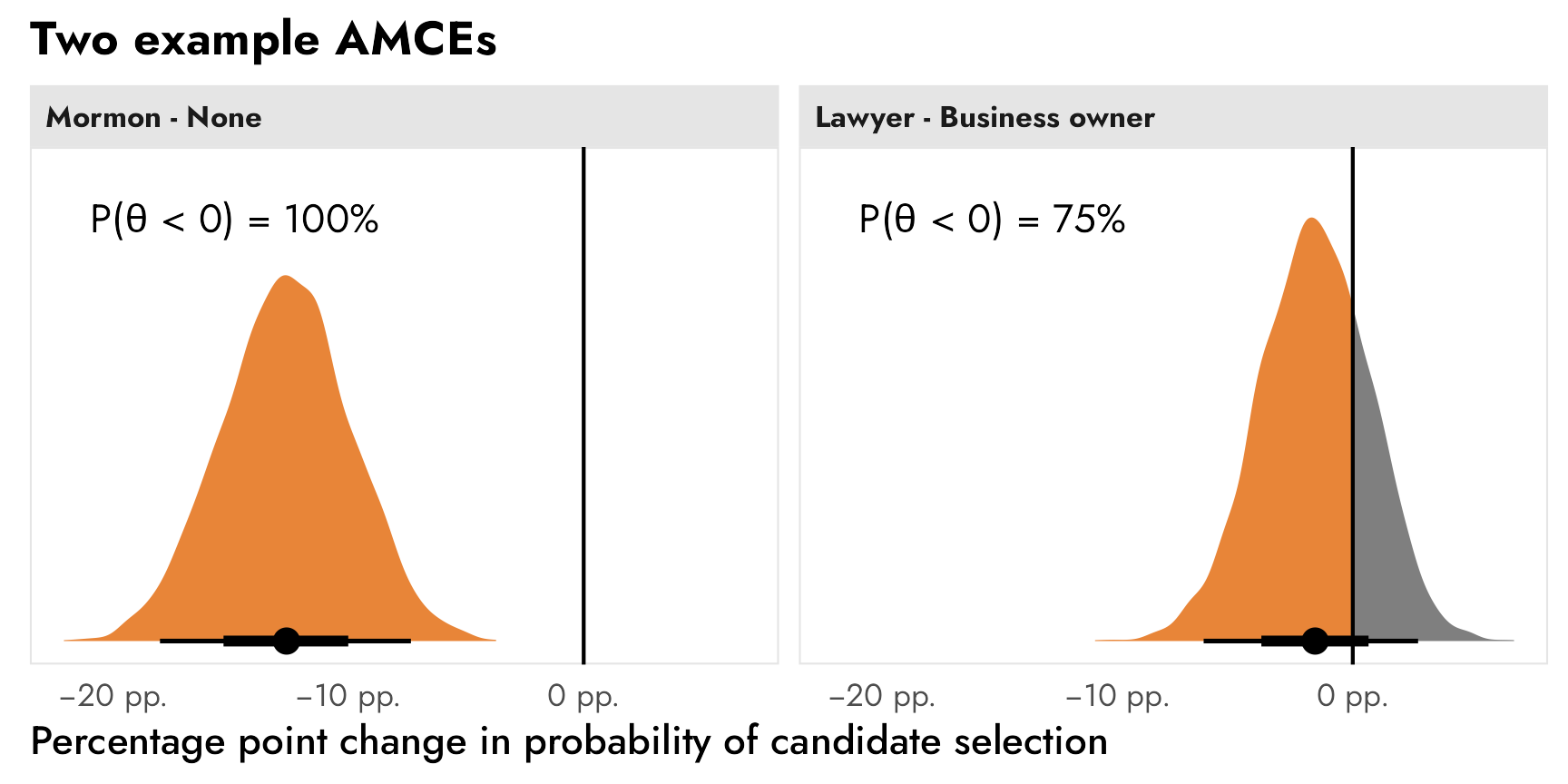
In my research, I study international nongovernmental organizations (INGOs) and look at how lots of different institutional and organizational factors influence INGO behavior. For instance, many authoritarian regimes have passed anti-NGO laws and engaged in other forms of legal crackdown, which has forced NGOs to change their programming strategies and their sources of funding.
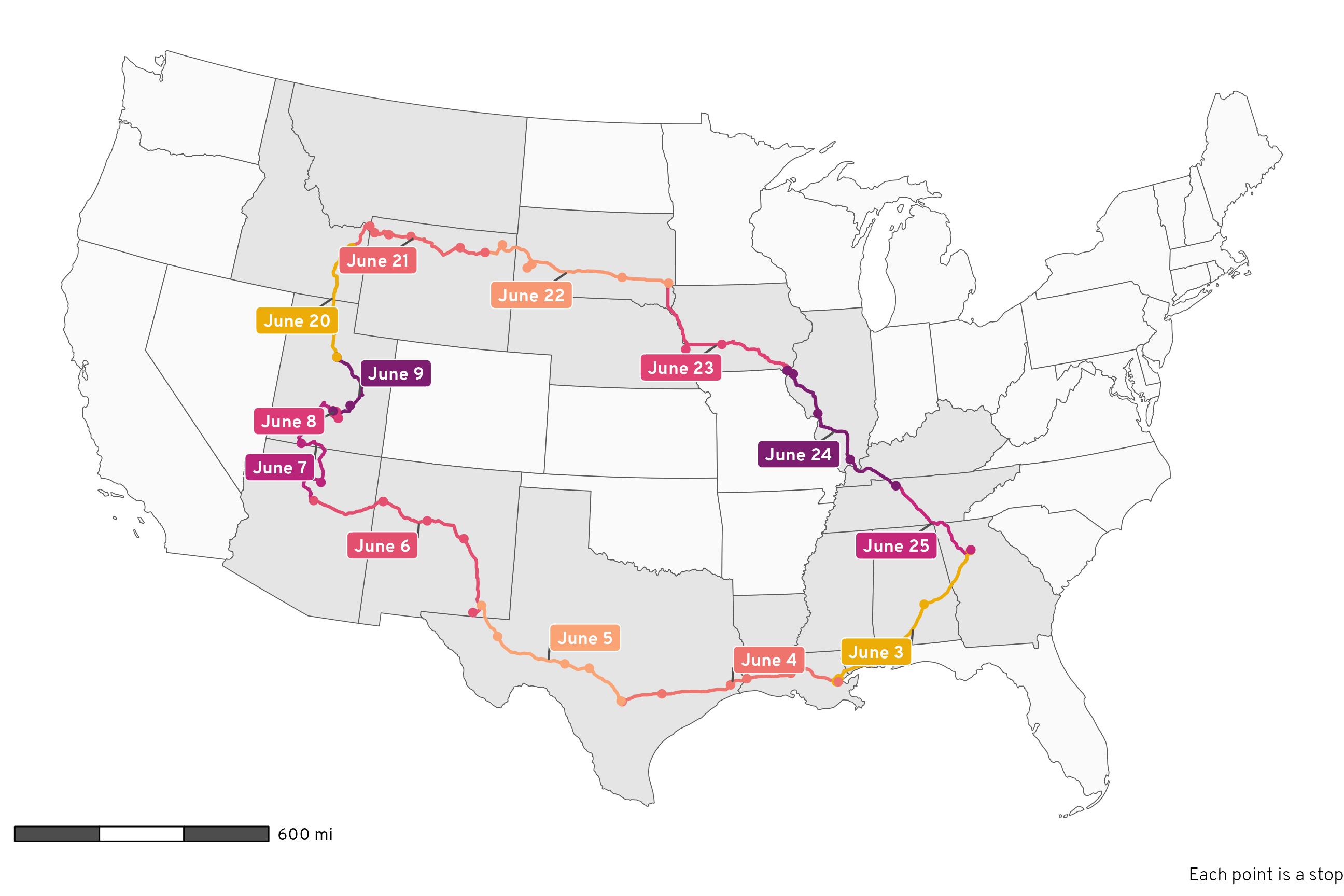
As I explained in my previous blog post, in June 2023 I drove my family across the country in a 5,000-mile roundtrip odyssey from Atlanta, Georgia to just-south-of-Salt Lake City, Utah, and back again.